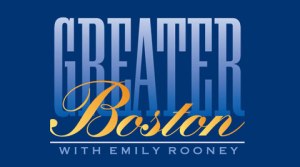Previously published at GBH News.
The challenge in providing government assistance to ease the local news crisis is to find ways of helping those who really need it while keeping the bad actors out. Which is why Martha Minow said this week that she’s “hopeful” but “fearful” about a federal bill that would create tax credits to subsidize subscribers, advertisers and news organizations.
“What I’m troubled about is: What’s local news, who defines it and how do we prevent the manipulation of this by multinational corporations?” she said. “That’s a problem, and I don’t know anyone who’s come up with an answer for that.”
Minow, a Harvard Law School professor, is the author of the recently published “Saving the News: Why the Constitution Calls for Government Action to Preserve Freedom of Speech.” The book lays out a series of ideas for reviving journalism, from requiring social media platforms to pay for content to providing subsidies for nonprofit news. She spoke Monday at a local book group that met virtually.
The legislation Minow was referencing, the Local Journalism Sustainability Act, has attracted an unusual amount of bipartisan support and seems to stand a decent chance of becoming law. Those who wrote the proposal included limits on the size of news organizations that would be eligible, but the large corporate chains that own many of them would not be blocked from applying. That’s problematic given that chains and hedge funds are squeezing the life out of local news.
Minow, though, was referring to a different phenomenon — “sham” local news organizations that “shill for who knows what.” Although Minow did not use the term, such sites are purveyors of what is known as “pink slime” journalism, which look like community sites but are in reality vehicles for political propaganda. Those who operate such projects have taken advantage of the opening created by the precipitous decline of legitimate local news organizations in recent years by launching hundreds of such sites — most of them on the political right, but some on the left as well. One suggestion Minow offered was to limit government assistance to news organizations whose journalists live in the communities they cover.
Much of “Saving the News” is devoted to the proposition that government has always been involved in subsidizing journalism, from low postal rates to the development of the telegraph, from regulating radio and television to investing in the internet. Given that activist history, she writes, it would be derelict for the government not to step in. She quotes Supreme Court Justice Hugo Black, who in 1945 wrote that “it would be strange indeed … if the grave concern for freedom of the press which prompted adoption of the First Amendment should be read as a command that the government was without power to protect that freedom.”
Her proposals fall under three broad categories:
• Regulating Facebook and other social media platforms “subject to duties and expectations commensurate with their functions and their powers.” That would include not just requiring them to pay news organizations for the content they use but also regulating them as public utilities and subjecting them to antitrust enforcement;
• Fighting misinformation and disinformation through “public and private protections against deception, fraud, and manipulation and bolstering the capacities of individuals and communities to monitor and correct abuses and demand better media and internet practices”;
• Using the power of government to “support, amplify, and sustain a variety of public interest news sources and resources at the local, regional, and national levels.”
“With the entire project of democracy in danger, federal, state, and local governments can and indeed should be obliged to act — while remaining as neutral as possible toward content and viewpoint in private speech,” Minow writes. “If judicial readings of the First Amendment prevent such actions, the courts would be turning the Constitution into a suicide pact.”
In a time of intense polarization, Minow said this week that she hopes reviving local news can help bring communities together. Noting that studies have shown corruption rises and voting rates drop in the absence of reliable local journalism, she said, “There’s less polarization in local communities for obvious reasons. People have to get along, they have to get the snow plowed.”
Minow comes by her interest in reliable news and information naturally: Her father, Newton Minow, is a former chair of the FCC best known for calling television “a vast wasteland.” His daughter’s book is a useful compendium of why we need to take steps to save local news — and what some of those steps might look like.


 Emily Rooney is taping the intro to a segment of WGBH-TV’s new local public-affairs show, Greater Boston. Or trying to, anyway. It’s been a long day. Her feet are killing her. And her first few attempts at hyping an interview with Charles Murray, the controversial academic who’s currently promoting his new book on libertarianism, haven’t gone particularly well.
Emily Rooney is taping the intro to a segment of WGBH-TV’s new local public-affairs show, Greater Boston. Or trying to, anyway. It’s been a long day. Her feet are killing her. And her first few attempts at hyping an interview with Charles Murray, the controversial academic who’s currently promoting his new book on libertarianism, haven’t gone particularly well.